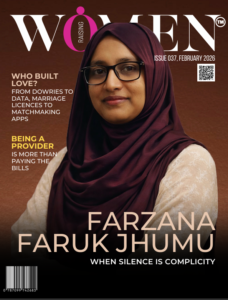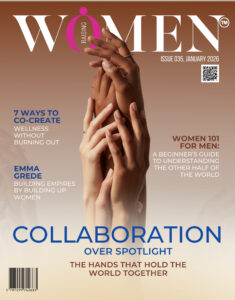Is our World a Safe Space for Women?
By Florence Wele
Imagine a world where women can walk the streets without fear, be valued and respected, safe from harm. Sadly, that’s not the reality for millions of women across the globe. Gender-based violence, including femicide—the intentional killing of women simply because they are women—remains a terrifying daily threat.
Take the tragic case of Kiara Agnew, a Canadian woman found murdered in Mexico. She was killed in a resort in Playa del Carmen, and her body was discovered showing signs of violence. Though her boyfriend was initially arrested for femicide, he was later acquitted, leaving Kiara’s family shattered.
In Kenya, 33-year-old Ugandan Olympian Rebecca Cheptegei was brutally attacked by her ex-boyfriend Dickson Ndiema Marangach, who set her on fire after a disagreement over land. Despite being rushed to the hospital, she died from severe burns. Her death sparked an outpouring of grief and highlighted the dangers many women face—even in their own homes.
Meanwhile, in Switzerland, Kristina Joksimovic, a former Miss Switzerland finalist, was strangled and dismembered by her husband. This horrific murder reignited debates on domestic violence and the urgent need for stronger measures to protect women.
Nigeria is also grappling with a surge in femicide. The stories are heartbreaking, especially when the perpetrators are those trusted by the victims. Christiana Okechukwu, a university student, was tragically killed by a male friend. Similarly, Damilola, a 100-level student, was strangled and her organs harvested by a man who demanded ransom from her family before killing her.
While precise figures are challenging to obtain due to underreporting and data limitations, a 2022 report by UN women revealed that around 48,800 women and girls worldwide were killed by their intimate partners or other family members, with 20,000 victims from Africa alone. This figure, though alarming, may represent only a fraction of the actual number of femicides, and the lack of comprehensive data makes it difficult to fully grasp the extent of this crisis.
“Some of these killings are motivated by ritualistic practices or financial gain, while others are purely acts of gender-based violence.”
Regardless of the reason, the complexity of femicide requires a multifaceted response. It’s not just about stopping violence; it’s about addressing the cultural, social, and economic factors that perpetuate it. It’s no longer enough to rely on weekly safety measures like pepper spray, AirTags, or curfews. As a society, we must actively speak out against violence and support the women in our lives.
At the same time, law enforcement must prioritize femicide investigations and ensure that perpetrators face justice. Beyond that, we need to challenge and change the cultural attitudes that perpetuate gender inequality and harmful stereotypes.
By raising awareness, demanding accountability, and advocating for real change, we can help build a safer, more just world for all women.
Let us remember the names of those who have been lost to femicide:
Christiana Okechukwu Damilola
Kiara Agnew Rebecca Cheptegei
And countless others whose stories remain untold.
Their lives were taken from them far too soon. Let us honor their memory by fighting for a future free of gender based violence.







